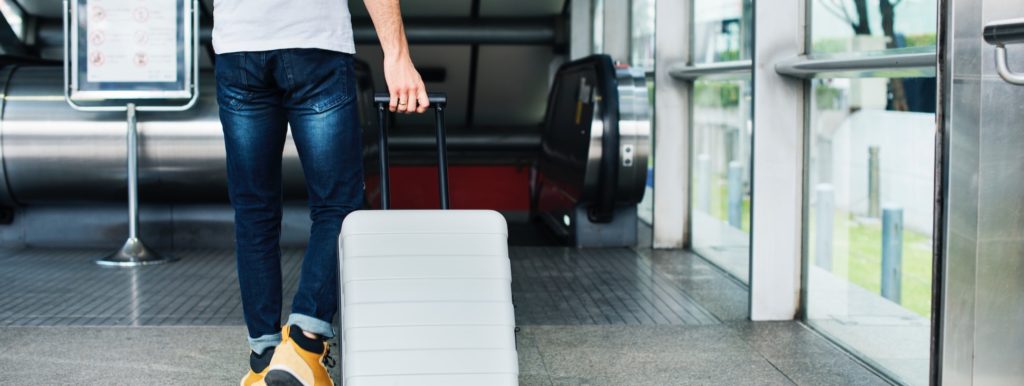You need to book a holiday fast, or you’re working on a tight budget. You go online, search for the kind of trip you want, and see options that seem absolutely perfect, available at the right times and at a very reasonable price. Bingo! You click to confirm, go through to a payment page and enter all your details.
But things go wrong. Maybe you needed to make a direct bank transfer but the ‘agent’ disappears, or either your flight or your accommodation (or both!) don’t exist.
Over 5,000 UK residents reported holiday-related fraud in 2018, but such cases are continuing to go unreported worldwide. Here is a breakdown of the common holiday scams to look out for, and how to ensure you don’t fall victim to them.
Fake Profiles, Fake Dreams
Fake listings are set up on popular websites like Airbnb and HomeAway, using attractive, professional photos and populated with seemingly convincing reviews, but in reality, they don’t exist.
What happens?
Holidaymakers find their ideal destination, usually at a fantastic price and available when they need it. The photos are amazing, the location is ideal and the reviews look great. They’re delighted, and are emotionally in a position to just ‘go for it’ and book their perfect holiday before the price goes up, or the accommodation becomes unavailable.
However, they typically have to make payments outside of the travel website’s secure platform, to ‘agencies’ who may not have the appropriate accreditation or ‘trust marks’. Money disappears on holiday accommodation that was never there, sold by people you never see again.
How to avoid it:
There are a few key ways to spot and avoid these kinds of scams:
- Check for accreditation from ABTA, ATOL or I-PRAC, and verify their membership with the relevant body. Logos for both ABTA and ATOL can be faked, but all I-PRAC logos have unique membership numbers that can be cross-referenced here using our Member ID Search.
- Take a closer look at reviews – are they over-the-top with lavish praise, do they go into unnecessary detail, are there repeated phrases, or do the reviewers have a real profile elsewhere? Read our article on identifying fake holiday property reviews
- Check to see if photos have been hijacked from elsewhere online by copying and pasting into a Google image search, or right-click on a photo and select ‘Search Google for image’. Read our article on spotting fake holiday property photos
- Never pay a vendor by direct bank transfer, especially if directed to do so in a private email or message. Large holiday rental platforms are safe sites and stepping outside of them means their safeguards no longer apply.
Sadly, fraudulent activity is not confined to holiday accommodation. Thousands of people have been ripped off by other scams around the holiday and travel industry, causing travellers harm emotionally as well as financially.
Flight Booking Fraud
Websites selling fake tickets or unconfirmed flights – usually offering a cheap deal on a high-value trip – before the victims realise they have simply been robbed.
What happens?
Fraudsters use stolen credit cards to buy flights. When the card is reported stolen, the flights are cancelled, but they still have a confirmation number to pass on in their official-looking receipt. Or they will use your information and card details to make it look like your payment has not gone through and convince you to make a direct bank transfer instead.
How to avoid it:
Check all the numbers thoroughly, and that the flight exists, confirming with the airline if necessary. Make sure the agent is accredited by ABTA and ATOL. Is the deal too good to be true? Then it’s probably false. Finally, Google the agent or company to see if they are listed in Companies House, if they have a real office, if they have any reviews online and if so, what are they?
Document Fraud
Companies selling fake travel visas, permits or other official documents.
What happens?
These agencies are either charging for counterfeit or non-existent documents, or taking fees for services that are actually free or cost very little like a European Health Insurance Card or an Esta Visa for the USA.
How to avoid it:
Always go to the source. Check with official bodies like the Foreign Office, the NHS or the US Government website about exactly what you need to do or pay, and always apply direct.
‘Free Holiday’ or Timeshare Scams
Victims are either gifted a free holiday or ‘win’ one (in a supposed lottery or on a scratch card), but become tied into properties they can’t use or sell, and are therefore obliged to make payments.
What happens:
What was initially sold as a free holiday suddenly turns into a high-pressure timeshare sell, with plenty of conditions, or leads to a contract that is impossible to get out of. Then fraudsters offer to take it off your hands for a fee, but never deliver on promises.
How to avoid it:
If it sounds too good to be true, it usually is. Simply decline offers that promise free holidays – they are using a psychological trick by giving you something to make you feel like you should give something back. And never pay up front for a timeshare-selling service.
Airport Wi-fi Scams
Fraudsters set up free Wi-fi hotspots in airports, but use the insecure connection to gain access to users’ personal details.
What happens?
In the current era, where everyone expects to be connected easily all the time and public shared Wi-fi is common, little thought is given to security. By logging on to a criminal Wi-fi connection, you may be revealing emails and passwords, or inadvertently giving access to your payment card details.
How to avoid it:
Check for signs around you or ask airport staff for the best Wi-fi connection to use. If you are concerned, use false details for any personal information or passwords, and never use a public Wi-fi connection to send private details or make payments.
Slow Change Counting
A very simple trick where a dodgy cashier will exploit your urgency to short-change you.
What happens?
This is happening less now as contactless payments become more common everywhere. But if you’ve paid by cash – and on holiday you’re more likely to have larger denomination notes – the cashier will count out your change very slowly. Rather than spend an eternity waiting, you smile and just take the money, only realising later it’s short.
How to avoid it:
There’s no other way than working out what your change should be, being ultra-patient and seeing it through to the end, or paying by card.
Taxi Scams
The driver says their meter is broken, or your hotel is actually closed – but don’t worry because they’ll make sure you get a good deal at this great place they know. Except you don’t, their meter isn’t broken and your hotel is fine.
What happens:
The driver’s meter may or may not be broken, but the deal they give you on the fare is unlikely to be favourable. Similarly, they may offer to solve your accommodation
How to avoid it:
Treat any taxi ride as you would a normal cab journey at home. Meter broken? Either find another taxi or agree a price before the journey starts. Hotel apparently closed? You’re hiring them to drive you there, not to re-book accommodation. Insist they take you there anyway just to check, but maybe best to find another cab rather than call them out as a liar.
I-PRAC is working hard to protect holidaymakers from fraud, to raise awareness and to help people protect themselves. Want to know more? Feel free to get in touch, or look through the many articles through I-PRAC Media.



